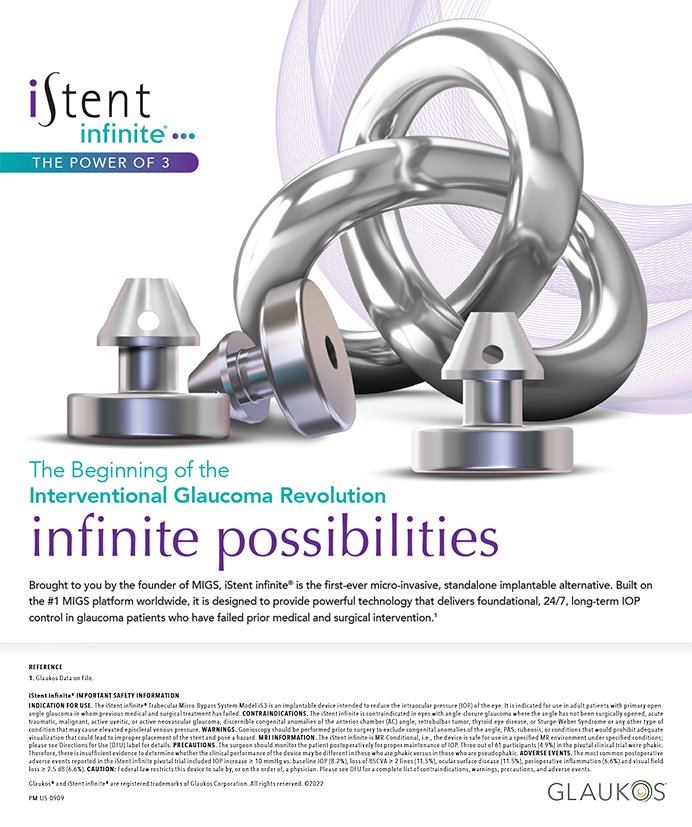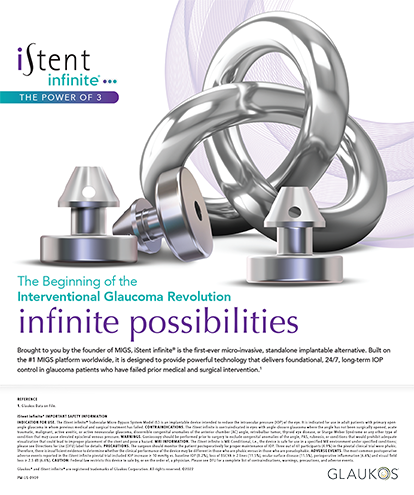
The term middle segment surgery (MSS) refers to the practice of tackling corneal and lens-based challenges via a pars plana approach. MSS not only enhances clinical outcomes for patients but also broadens the array of lens options and surgical methods available to surgeons. These include intrascleral haptic fixation, sutured IOLs, and pars plana–assisted anterior vitrectomy. Who is best suited to performing these intricate procedures? Although the concept of collaborative cases involving both anterior and posterior segment surgeons might seem adequate, it falls short in practice. The pursuit of MSS underlines the need for a singularly proficient surgeon, trained across both domains, to provide cohesive care and superior patient outcomes, challenging the traditional dichotomy between anterior and posterior segment expertise.
THE CASE FOR A SINGLE SURGEON
The division of labor has propelled the field of medicine, and ophthalmology in particular, forward. A relentless drive toward specialization enables physicians to dedicate more of their time to a narrower scope of issues, thereby cultivating experts with greater knowledge and proficiency in their specific areas of focus. Not so long ago, the medical community and many physicians considered the eye to be merely one component of the broader otolaryngologic spectrum, including ears, nose, and throat. The suggestion to segregate ophthalmology as a distinct specialty, complete with unique training and dedicated practitioners, was likely met with skepticism, if not outright ridicule. Today, however, it is easy to recognize the immense value this separation brought to our field and our patients.
The push for subspecialization, however, continued. For instance, the emergence of corneal surgery as a subspecialty, championed by a group of eye surgeons passionate about this specific tissue segment, called for additional training focused on particular surgical procedures. The underlying rationale for this and all medical specialization is to foster subject-matter experts capable of delivering superior clinical outcomes for patients.
The debate surrounding MSS echoes the aforementioned changes. Although it may seem logical to have an anterior segment surgeon complete a procedure initiated by a posterior segment surgeon, the logistical challenges of coordinating such dual-specialist surgeries are formidable. Scheduling complexities, the division of postoperative care, and the responsibility for monitoring potential complications, such as hypotony, or addressing patient dissatisfaction with visual outcomes are significant concerns.
In an era when patient expectations about eye surgeries, including complex procedures, are exceedingly high, settling for anything less than optimal results is no longer acceptable. The goal of MSS is for a single, well-versed surgeon to manage these challenges. This includes conducting thorough preoperative assessments and imaging (eg, no-touch biometry and topography), executing surgery, and overseeing postoperative care.
TOWARD UNIFIED MSS
This month’s cover series shines a spotlight on the evolving nature of ophthalmology. The goal of MSS is to empower both anterior and posterior segment surgeons. This evolution requires a commitment to a core set of training principles to achieve excellence in lens-based refractive and vitreoretinal surgery. The initiative is about more than merging specialties; it is about advancing patient care through a holistic and unified surgical approach.




